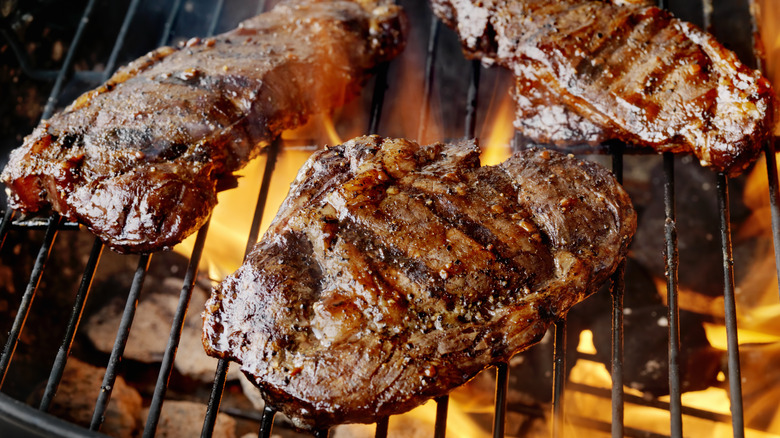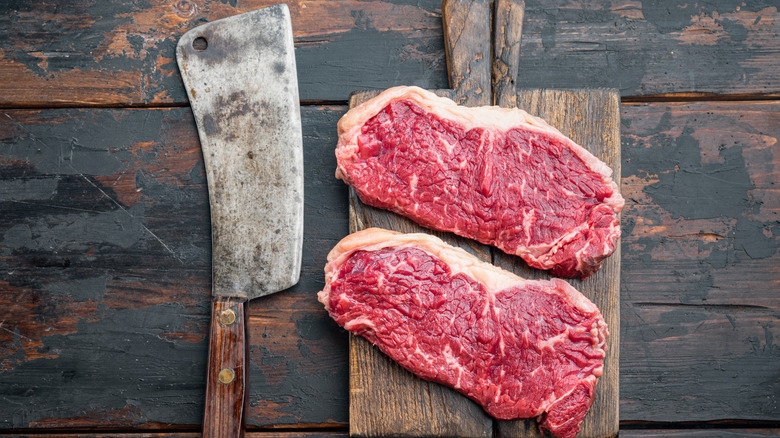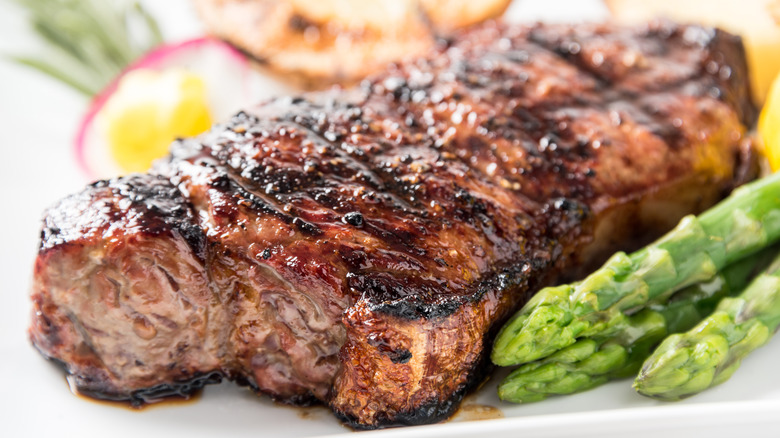How Do Kansas City And New York Strip Steaks Differ?
From the tender filet mignon to the tough but flavorful brisket, beef lovers have their choice of an almost dizzying number of cuts from a single cow. Even among common varieties of steak, there are notable differences that can have a noticeable effect on the flavor of your meat and your overall dining experience.
An excellent example of this is the strip steak, which is cut from a tender muscle known as the short loin primal. This is the same area of the cow that produces the T-bone and porterhouse when portioned differently. From this cut comes the two regionally named steaks that are familiar to many: the Kansas City strip and the New York strip. The primary difference between the two lies in the bone that's included (or removed) in the cut that hits your plate. However, there are also other nuances that distinguish these popular steaks from one another.
A bone to pick with Kansas City Strip
Kansas City strip steaks are set apart by the inclusion of the bone. This cut has been known as the Kansas City strip steak for nearly two hundred years, with the name coined by the iconic fine-dining pioneers the Delmonico brothers. The term was in use as early as 1827 to distinguish it from the boneless version, which became known as the New York strip. The moniker is a tribute to Kansas City's long-running and prominent role in the beef and cattle-ranching industries.
Many steak lovers believe the presence of the bone amps up the beefy taste compared to boneless alternatives. Bone-in cuts typically benefit from the release of flavorful marrow, collagen, and fat but also require more finesse to prepare, as the bone can slow the cooking process or make the overall result uneven. In addition, many Kansas City strip steaks include more marbling and sometimes, more fat left untrimmed around the edges.
Lean, mean, and boneless: the New York Strip
New York strip steaks are the alternative (and often more familiar) version of this cut. Also named by the Delmonicos, it became common after diners asked chefs to remove the bone to make it easier to eat.
This boneless versatility allows the New York strip to be more easily cooked on the grill, in the pan, or under the broiler, helping avoid one of the most common ways you're ruining expensive cuts of steak — using the wrong cooking method. The New York strip is also generally leaner than the Kansas City strip, a difference that can be noted in both taste and texture.
For all these reasons, it's easy to see why the strip steak made the top 10 on Mashed's ranking of popular cuts of steak. So, whether you prefer the Big Apple-themed boneless variety or the hearty, Midwestern-influenced bone-in cut, it's hard to go wrong with New York or Kansas City strip steaks.


